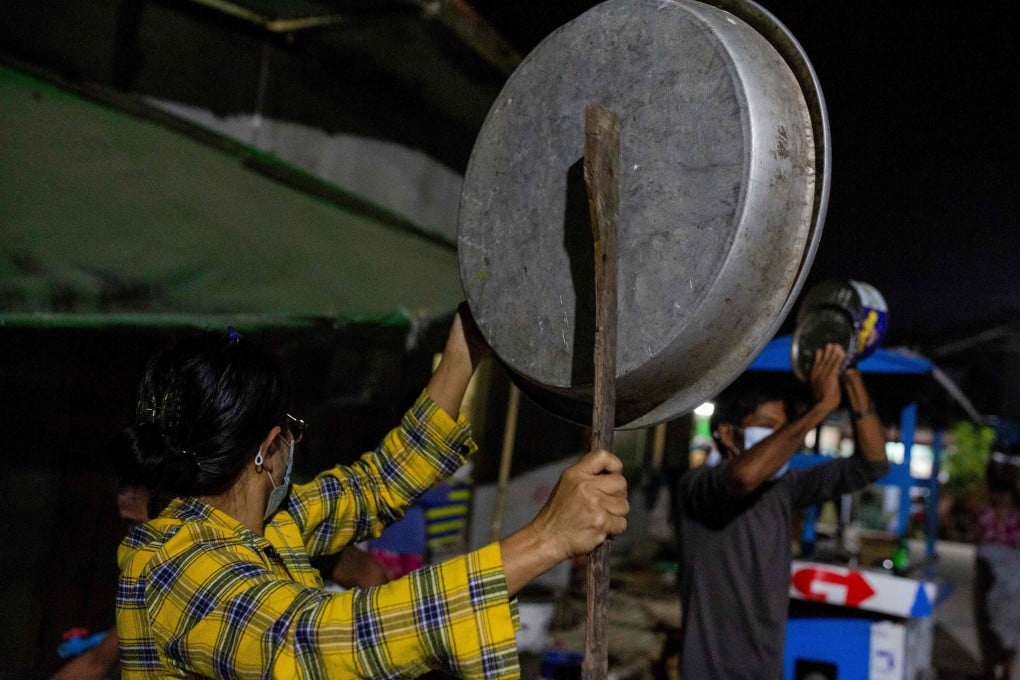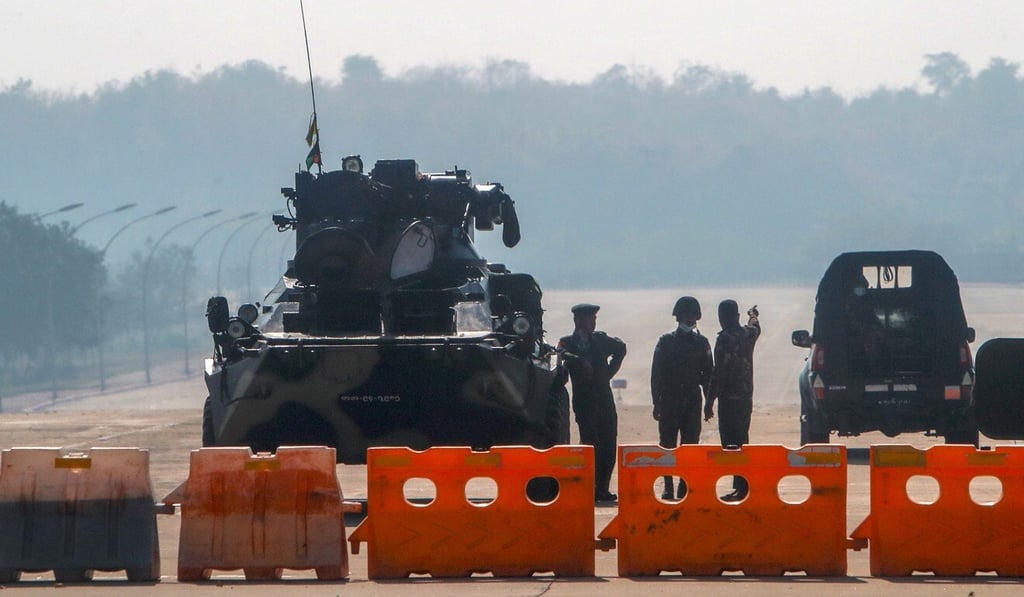Advertisement
In Myanmar, noisy ‘protests’ erupt against military coup, as doctors join campaign of civil disobedience
- People in Yangon chanted ‘evil be gone’ and banged on metal pots late on Tuesday in a traditional gesture to drive away evil or bad karma
- Meanwhile, doctors in at least 20 government hospitals joined a campaign of civil disobedience, with some pictured wearing protest slogans
Reading Time:5 minutes
Why you can trust SCMP
2

The din of banging pots and honking car horns reverberated through Myanmar’s biggest city of Yangon late on Tuesday in the first widespread protest against the military coup that overthrew the elected government of Aung San Suu Kyi.
The party of the detained Nobel Peace laureate called for her release by the junta that seized power on Monday and is keeping her at an undisclosed location. It also demanded recognition of her victory in a November 8 election.
The military has refused to accept the NLD’s landslide election win, citing unsubstantiated allegations of fraud. The army detained NLD leaders, handed power to its commander, General Min Aung Hlaing, and imposed a state of emergency for a year.
Advertisement
At the United Nations, Myanmar envoy Christine Schraner Burgener urged the Security Council to “collectively send a clear signal in support of democracy in Myanmar.”

Advertisement
The council is negotiating a possible statement that would condemn the coup, call for the military to respect the rule of law and human rights, and immediately release those unlawfully detained, diplomats said. Consensus is needed in the 15-member council for such statements.
A diplomat with China’s UN mission said it would be difficult to reach consensus on the draft statement.
Advertisement
Select Voice
Choose your listening speed
Get through articles 2x faster
1.25x
250 WPM
Slow
Average
Fast
1.25x